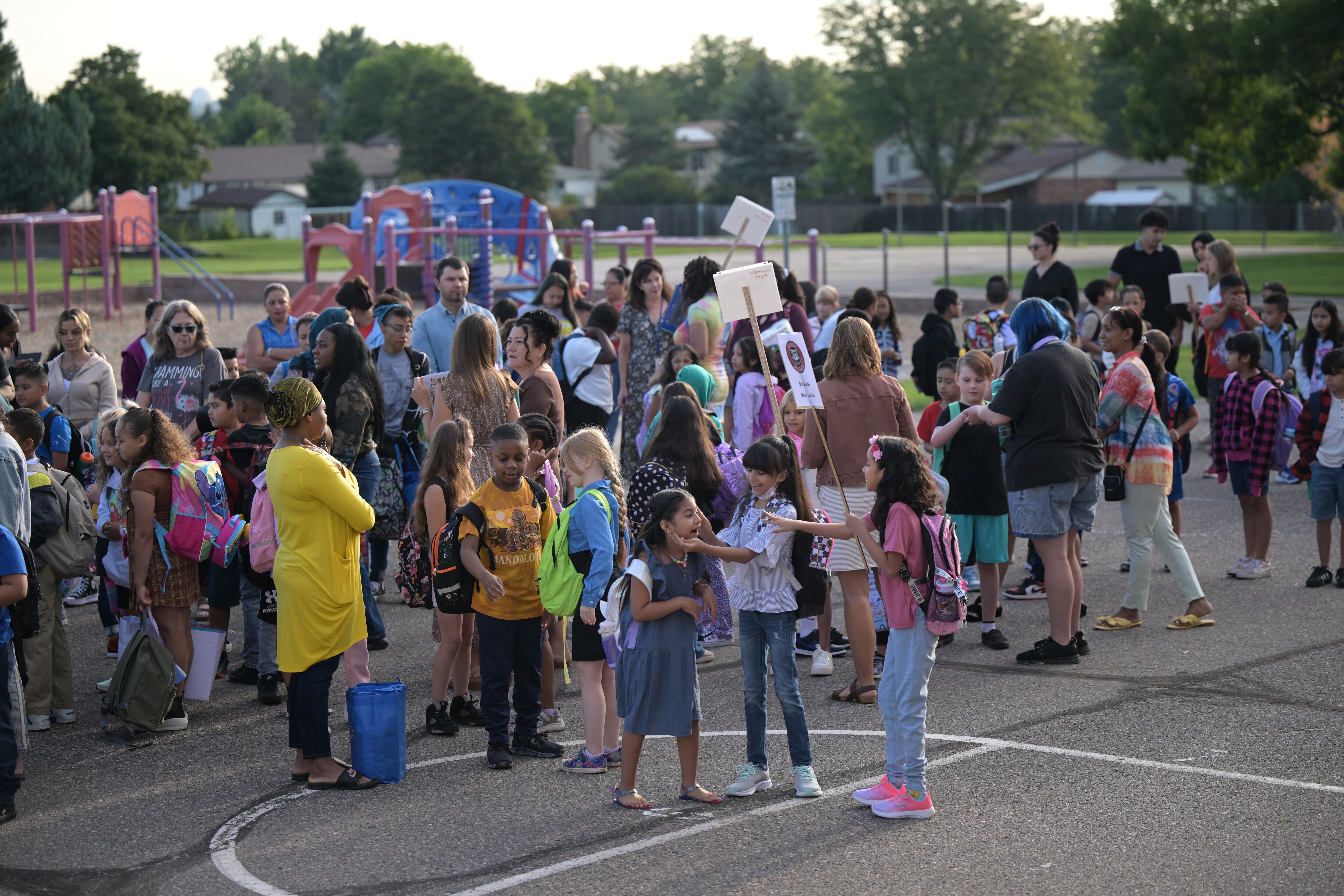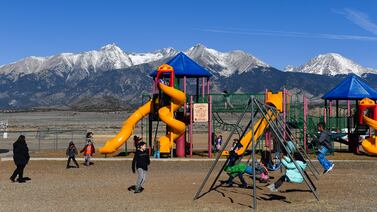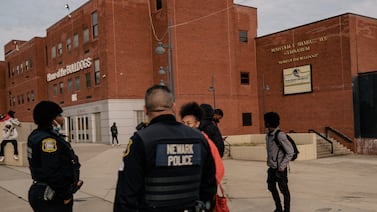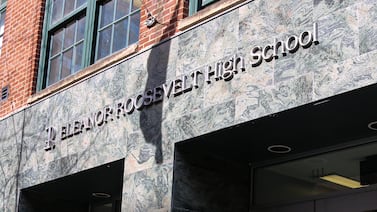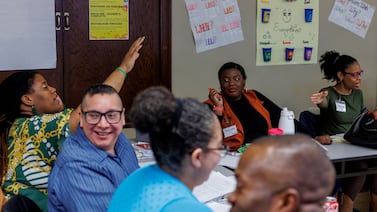Five candidates have qualified to run for three open seats on the Aurora school board, at a time when the district is in the midst of a leadership change and is grappling with low state ratings.
Only one of the five candidates is an incumbent, Vickie Reinhard. Two other board members, Stephanie Mason and Nichelle Ortiz, are not running for reelection. That means, the seven-member board will have a minimum of two new members after the Nov. 7 election. With three open seats, the election could shift the dynamics on the board.
Aurora school board seats are all at-large, meaning every voter in the district gets to vote for their top three candidates, and the top vote-getters win the seats.
Mason and Ortiz, whose terms will end after the election, have been vocal critics of the district, and especially of the former superintendent, Rico Munn, until his departure last school year. Mason was also recommended for censure as part of an investigation into complaints filed by Munn after his departure. That investigation found that Mason and the school board had discriminated against Munn, but the school board voted not to take action on the recommendations.
Now, the district has a new superintendent, Michael Giles, who took over leadership this summer. The next school board will have to work with Giles through a number of challenges. The district also learned last month that it has once again earned low state ratings based on low student achievement, landing it on the state’s accountability clock, which gives it five years to improve before facing state intervention.
Aurora schools have also faced unique enrollment challenges as the district, like many others, have been losing students. But unlike some other districts, Aurora expects the drops to stop in the next few years as housing developments are built out in the eastern parts of the district.
The district had a plan that called for closing some schools in the western part of the district while opening new schools in the east. The new superintendent is reviewing whether those plans will continue or be changed, and school board members will have a hand in guiding those plans.
The candidates who qualified for the ballot are:
Danielle Tomwing, who also ran for a seat on the board in 2021. In that election, Tomwing had earned support from charter advocates. Tomwing, a software development director originally from Trinidad and Tobago and mother of two Aurora students, is also a board member at Vanguard Classical School, a charter her daughters attend.
“All you can keep asking is ‘how can I help?’” Tomwing told Chalkbeat, explaining why she is running again.
She said the margin of votes by which she lost in the 2021 election wasn’t wide – Tomwing came in last of six candidates, earning 13.8% of the vote compared to the 15.2% earned by the fourth-place finisher, a difference of about 1,200 votes. Since then, she said, the many changes in the district still require more collaboration and an equity lens. She believes those are two of her strengths, she told Chalkbeat.
Tiffany Tasker calls herself an “auntie-mother-scholar.” Tasker is helping raise her 6-year-old niece who attends Aurora schools, and she herself attended Aurora schools much of her life. Now, she’s a student at the University of Colorado Denver, working on a doctorate of education.
She is a director of outreach and marketing for the Financial Education and Economic Transformation Center, a nonprofit that’s already working at some Aurora high schools, and looking to offer its classes at more, Tasker said. She also started substitute teaching this school year.
Tasker said she is focused on guiding the district to offer more culturally responsive education and creating a better environment for teachers so that they can effectively help students.
“I strongly believe it has to be a culturally responsive, healthy, and safe learning and teaching environment for leaders, educators, and students,” Tasker said.
Vicki Reinhard is an incumbent who was first elected to the school board in 2019. She retired from working in the district as an elementary special education teacher.
In her time on the board, Reinhard was also sometimes at odds with Munn, and voted to end his contract.
“I want to support the leadership transition in our district,” Reinhard told Chalkbeat about why she’s running again. “I’m hoping to help provide a little bit of stability.”
She also said she’s excited about new work the district is doing to offer students more career and technical education, as well as science, technology, engineering, arts, and math (also known as STEAM) programming.
Max Garcia is a middle school long-term substitute teacher and sports coach at a charter school. He has three daughters, including two who he said are still students in Aurora charter schools.
Garcia said he is running for school board because he’s concerned about low academic achievement and the mental health problems he sees students experiencing ever since schools were shut down due to the pandemic.
“Things have greatly declined,” he said.
So when he was asked to consider running, Garcia said he “didn’t even need to pray about that. I just need a good team of individuals. I’m a team player.”
Maria Saucedo does not have a campaign website and did not respond to interview requests, but The Sentinel reports Saucedo is a military veteran and retired Denver educator.
Yesenia Robles is a reporter for Chalkbeat Colorado covering K-12 school districts and multilingual education. Contact Yesenia at yrobles@chalkbeat.org.


